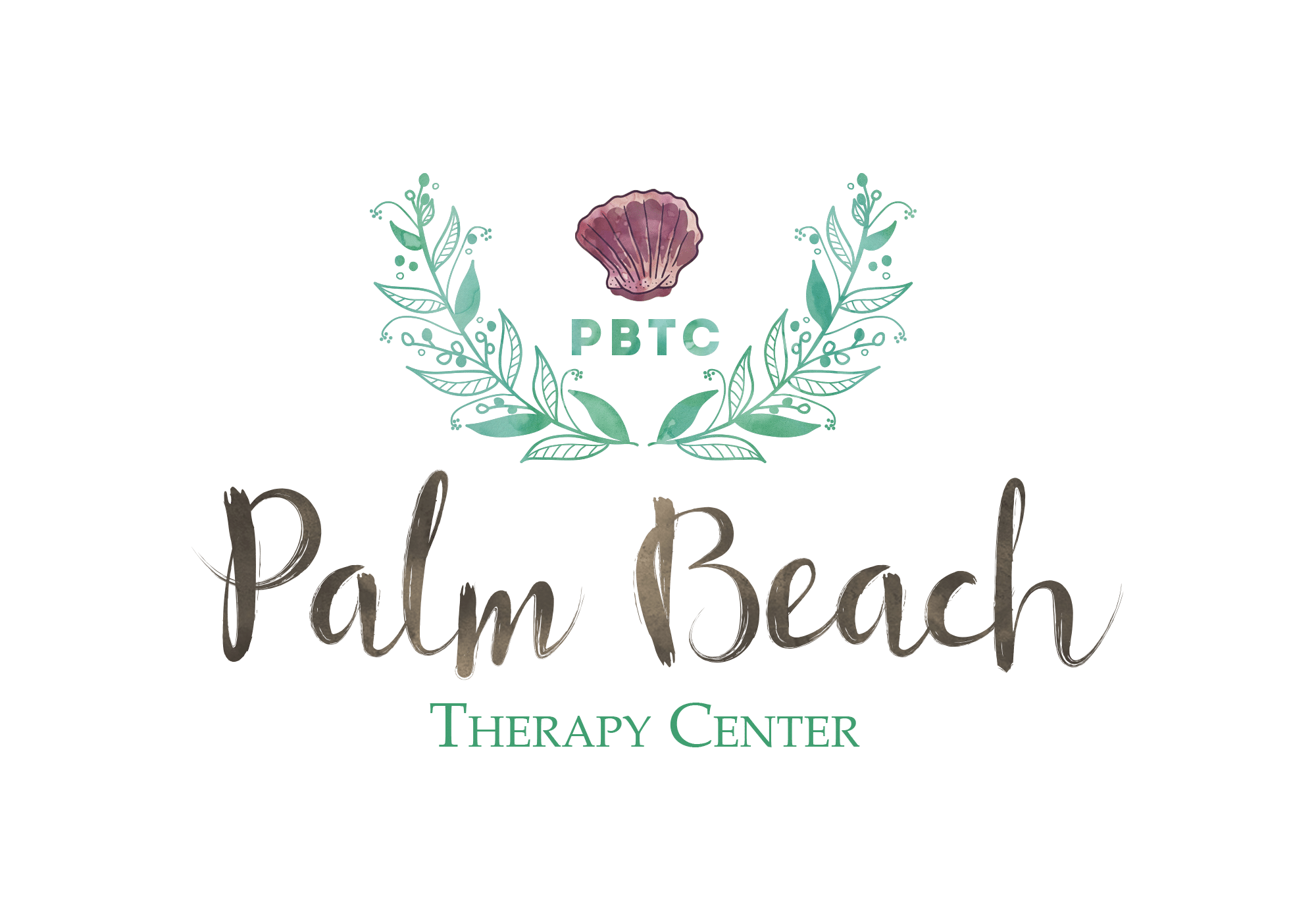Grief Counseling in Boca Raton, FL

You don’t move on from grief. You move forward with it.
Have you lost a loved one? Sadly, loss is a human experience that most of us will go through at some point in time. But as “normal” as it is, it continues to be one of the most painful things that we will ever experience.
Grief counseling isn’t about forgetting the person you’ve lost or “moving on.” It’s about learning new ways to adapt to a new life with the experience of loss. If you’ve experienced loss, then grief counseling can help.
What is grief, and what does it feel like?
Grief is a natural response to loss, and encompasses a wide range of emotional, psychological, and physical reactions to the death of a loved one or any significant loss or change that has occurred in your life. It is a deeply personal experience that varies in intensity and duration for each person.
Common emotional responses to grief include:
- sadness
- doubt
- disbelief
- anger
- guilt
- loneliness
Physical symptoms may include:
- fatigue
- sleep disturbances
- appetite changes
- physical pain
However, it’s important to understand that there is no wrong way to feel when you are grieving. Among these emotions, you may also feel relief, gratitude, and even find pockets of joy.
Although we typically think of grief as a result of someone dying, we can also grieve other losses, such as divorce, children leaving the home, and retirement (leaving a job).
What are the stages of grief?
Grief is a complex that unfolds over time. While commonly recognized stages include shock, denial, bargaining, depression, and acceptance, it’s essential to understand that grief doesn’t follow a linear path. Each person’s journey through grief is unique, and you may find yourself moving in and out of these stages or experiencing them in a different order.
Here’s a closer look at each phase:
Shock: In the initial stage of grief, you may feel a sense of numbness or disbelief, as if the reality of the loss hasn’t fully sunk in yet. This shock often serves to protect you from the emotional blow, and allows you to gradually process the enormity of the loss at your own pace.
Denial: As reality begins to set in, you may find yourself struggling to accept the truth of the loss. Denial can manifest as a refusal to believe that the loss has really occurred or an attempt to minimize its significance. It’s normal to experience moments of denial as you grapple with the reality of your new circumstances and the loss.
Bargaining: During this stage, you may find yourself engaging in bargaining behaviors, attempting to negotiate with a higher power or make deals in hopes of reversing the loss. You might find yourself thinking “if only” or focused on “what if” scenarios, desperately seeking a way to undo what has happened.
Depression: As the full weight of the loss settles in, you may experience profound feelings of sadness, emptiness, and despair. Depression in grief is not the same as clinical depression. Rather, it’s a natural response to the significant life change you’ve experienced. It’s important to allow yourself to feel these emotions fully and seek support when needed.
Acceptance: In time, you may reach a place of acceptance where you begin to come to terms with the reality of the loss and its impact on your life. Acceptance doesn’t mean forgetting or moving on from the loss, but rather acknowledging its presence and finding a way to integrate it into your life.
Do you need grief counseling?
Not everyone who experiences a loss will require grief counseling. But it could be helpful for you if you’re experiencing…
Painful feelings won't subside
Long-lasting grief
Withdrawing from loved ones
Difficulty functioning
Icon Box 3 Subheader
Social isolation
Past hurts resurface
Unresolved trauma
Need someone to talk to
Lack of support
Turning to bad habits like drinking
Unhealthy coping mechanisms

What is grief counseling, and do you need it?
Grief counseling offers a supportive and compassionate space for you to explore and process your feelings of loss. It’s important to clarify that grief counseling is not about helping you forget or “get over” your loss; rather, it’s about helping you adapt to a new life without your loved one or the lost aspect of your life.
In grief counseling, your therapist will provide a safe and non-judgmental environment where you can express your emotions freely and work through your grief at your own pace. Your therapist may use various therapeutic techniques, such as cognitive-behavioral therapy (CBT), mindfulness practices, and expressive therapies, to help you explore your feelings, gain insight into your grief process, and develop coping strategies for managing painful emotions.
Grief counseling can also involve addressing any unresolved issues or conflicts related to the loss, finding ways to honor the memory of your loved one, and navigating the practical challenges of adjusting to life without them. Additionally, we may provide you with education about the grieving process and normalize the range of emotions people typically experience.
Through the guidance and support of a trained grief counselor, you can find comfort, validation, and a sense of hope as you navigate this journey. While the pain of loss may never fully disappear, grief counseling can help you find meaning and purpose in your life as you continue to cherish the memories of your loved one.
Is grief counseling a good idea for me?
Grief is a universal human experience. While many people are able to navigate the grieving process with the support of family and friends, there are certain circumstances where grief counseling can be particularly beneficial.
You might benefit from grief counseling if you experience:
Intense or prolonged grief: Grief typically involves a period of intense emotions, but if these feelings persist for an extended period or become overwhelming, it can indicate complicated or prolonged grief. This doesn’t mean that anything is “wrong” with the way you are grieving, just that you might benefit from additional support and guidance.
Difficulty functioning: If grief significantly interferes with your ability to carry out daily activities, maintain relationships, or fulfill your responsibilities at work or school for an extended amount of time, it could be a sign that professional support is needed. Grief counseling can help you develop coping strategies and regain a sense of normalcy in your life.
Isolation and withdrawal: Some people withdraw from social interactions and isolate themselves following a loss, which is normal. But if your grief leads to prolonged social withdrawal, severe loneliness, or a sense of detachment from others, grief counseling can offer a supportive environment to process these emotions and reconnect with a supportive person.
Unresolved feelings or trauma: Grief can sometimes trigger unresolved emotions or past traumas, which can complicate the grieving process. For example, your grieving process may be especially difficult after losing an abusive parent or spouse. Grief counseling can provide a safe and non-judgmental space for exploring these underlying issues and addressing any past emotional wounds that may be contributing to your grief.
Lack of support: Not everyone has a strong support system to lean on during times of grief. Grief counseling can be particularly valuable for you if you feel like you don’t have supportive relationships or have felt misunderstood or isolated in your grief.
Unhealthy coping mechanisms: Some people turn to unhealthy coping mechanisms, like substance abuse, avoidance, or self-harm, to deal with their grief. Grief counseling can help these people identify healthier coping strategies and develop skills to manage their emotions in a more constructive way.
Complicated circumstances: Certain factors, like sudden or traumatic losses, multiple losses within a short period, or unresolved conflicts with the deceased loved one, can complicate the grieving process. Grief counseling can provide specialized support tailored to the unique circumstances of your loss, especially when it’s traumatic.
Ultimately, the decision to seek grief counseling is a personal one, and there’s no right or wrong way to go about this. However, if you are struggling to cope with your grief or feel overwhelmed by your emotions, reaching out to a qualified grief therapist can provide you with valuable support, guidance, validation, and emotional safety.
While grief never truly goes away, with time and support, you can learn to adjust to the loss and integrate it into your life. You can find ways to remember and honor the person (or thing) you have lost while also finding a way to live with purpose and resilience.
Our therapists have helped many people who have struggled with overwhelming feelings of grief or sadness related to loss. We believe grief is a natural and necessary process of mourning that reflects the depth of our connections to others and our capacity to love.
Start grief counseling in Boca Raton, FL
Our team of therapists is here to walk alongside you on your grief journey, providing guidance, support, and compassion every step of the way. You’re not alone, and together, we can navigate through the challenges of grief and find moments of healing and hope amidst the pain.
Please give us a call at (561) 485-4633 or use our online contact form to get started with grief counseling; our office is in Boca Raton, FL. We are here to listen.
FAQs
What kind of therapy is best for grief?
The type of therapy that’s best for you while grieving depends on your unique circumstances. For some, CBT may be the most helpful to challenge irrational or self-blaming beliefs you may hold about the loss. Mindfulness-based interventions and acceptance and commitment therapy can also help you reach a sense of peace about what has happened. For traumatic losses, EMDR may be used.
What type of counseling is needed when a person cannot get over the grief of losing a loved one?
All of us will lose a loved one at some point in our lives, but many people don’t require therapy. If you are having a difficult time coping with the painful emotions of grief or participating in daily activities (like self-care and work), then grief counseling may be helpful for you. This isn’t to help you “get over” the loss, but rather to support you in learning how to cope with it.
How long does normal grief last?
When it comes to grief, there is no “normal.” Some people may feel ready to resume regular activities in days, while others may struggle with depression for months or years. Whatever your grieving process is, counseling can provide you with a non-judgmental place to explore your feelings.
How It Works

Contact Our Office
Contact our office via phone or e-mail to schedule your initial session. We are here to make this process as easy and comfortable as we can for you.
Complete Paperwork
Complete the paperwork provided to you online within 24 hours of scheduling and mark the date on your calendar, we are looking forward to working with you!
Go To Therapy
Attend your initial session and discuss treatment planning with your therapist. Treatment plans may look different for each case. It is typically suggested that sessions take place weekly or biweekly.
Modern Therapy For Your Lifestyle.
At Palm Beach Therapy Center, we recognize that the decision to seek therapy can be a challenging one. It takes courage to confront difficult emotions and work towards personal growth. That's why we are committed to providing a supportive and comfortable environment that makes the process as seamless as possible.
Boca Raton Location
By Appointment Only



